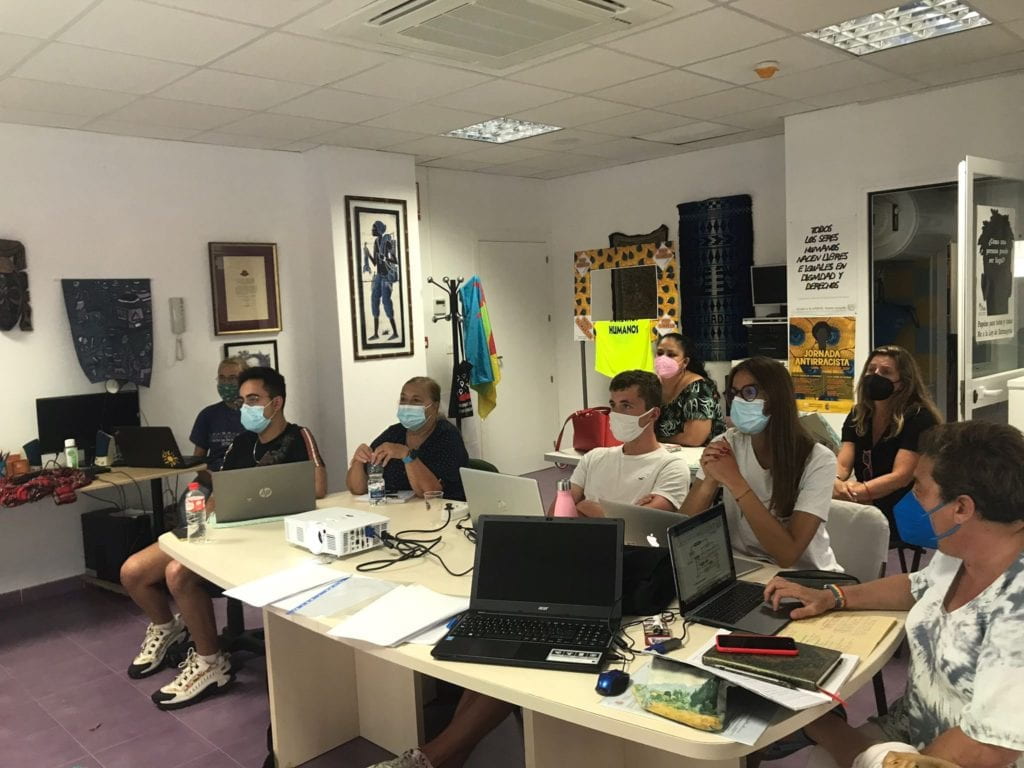Graciela Blandon /
Andalusian Association for Human Rights /
Cadiz, Spain /
Part of my interest in Spain as a site of study is the unique relationship between the country’s social movements and its state. Spanish activist groups, including those in the field of human rights, are constantly grappling with their relationship to the state as a key actor. Either demands are directed at it, movement candidates vie for positions as officials, or groups opt to reject the state and international bodies made up of states as an avenue for change outright. Spain is distinct in that the debate on how to relate to the state and its institutions is foregrounded by the memory of the 15-M movement.
Organizers at the Andalusian Association for Human Rights tell me that the 15-M movement against austerity in Spain coalesced outraged populations suffering from the 2008-2014 Spanish financial crisis. A key feature of 15-M was its commitment towards autonomous organizing. 15-M was highly critical of representative democracy and opted instead for anti-institutional grassroots mobilization. However, the energy of 15-M took an electoral turn with the emergence of the Podemos party, which claimed to be the means through which a futile endeavor could gain real power while not betraying participatory politics. Podemos advocates were accused of betraying the movement in favor of reformism while defectors from the party line were characterized as idealists removed from mass politics.
APDHA does not do any electoral work, but organizers’ conception of state institutions as a means to effect change dictates the approach the organization takes in addressing a wide range of human rights-related issues. So far, I’ve found that organizers have a strong commitment to respecting the ideal of 15-M but opt for legal and academic approaches to human rights matters. 15-M, on the other hand, was initially characterized by occupations and other forms of direct action.
I am reminded of NYU Professor Sophie Gonick’s work on synthesizing different approaches to community organizing in Spain. She identifies two strands of activism in the Spanish housing movement (which is currently an area of focus for APDHA Cadiz): radical autonomy and agonistic engagement. Radical autonomy holds that inherent corruption of the state cannot be surpassed by even the most committed organizers; all action must explicitly refuse institutional support and cultivate autonomous urban spaces instead. Because the state reproduces capitalist exploitation, it is incompatible with the objectives of human rights movements. Agonistic engagement, on the other hand, legitimates the state by engaging in its institutions to “safeguard endangered forms of social reproduction, such as universal healthcare.” Agonistic engagement “seeks to create openings and opportunities within the existing political order and views conflict as a productive site of action and advancement,” in Gonick’s words.

These positions are often overlapping. Gonick argues that agonistic engagement and radical autonomy are reconcilable if we move past viewing them as binaries on opposite ends of a spectrum. When the schools of thought converge in political imaginaries, transformative synthesis unites disparate groups. Gonick describes how eviction blockers united with those litigating home ownership cases against the shared threat of demobilization from the state. I see a similar synthesis emerging in Cadiz’s APDHA. The academic and legal work of the organizers is most effective when amplified by protests, demonstrations, and teach-ins in the community. They thus create an alternative mode of political engagement through their interactions.